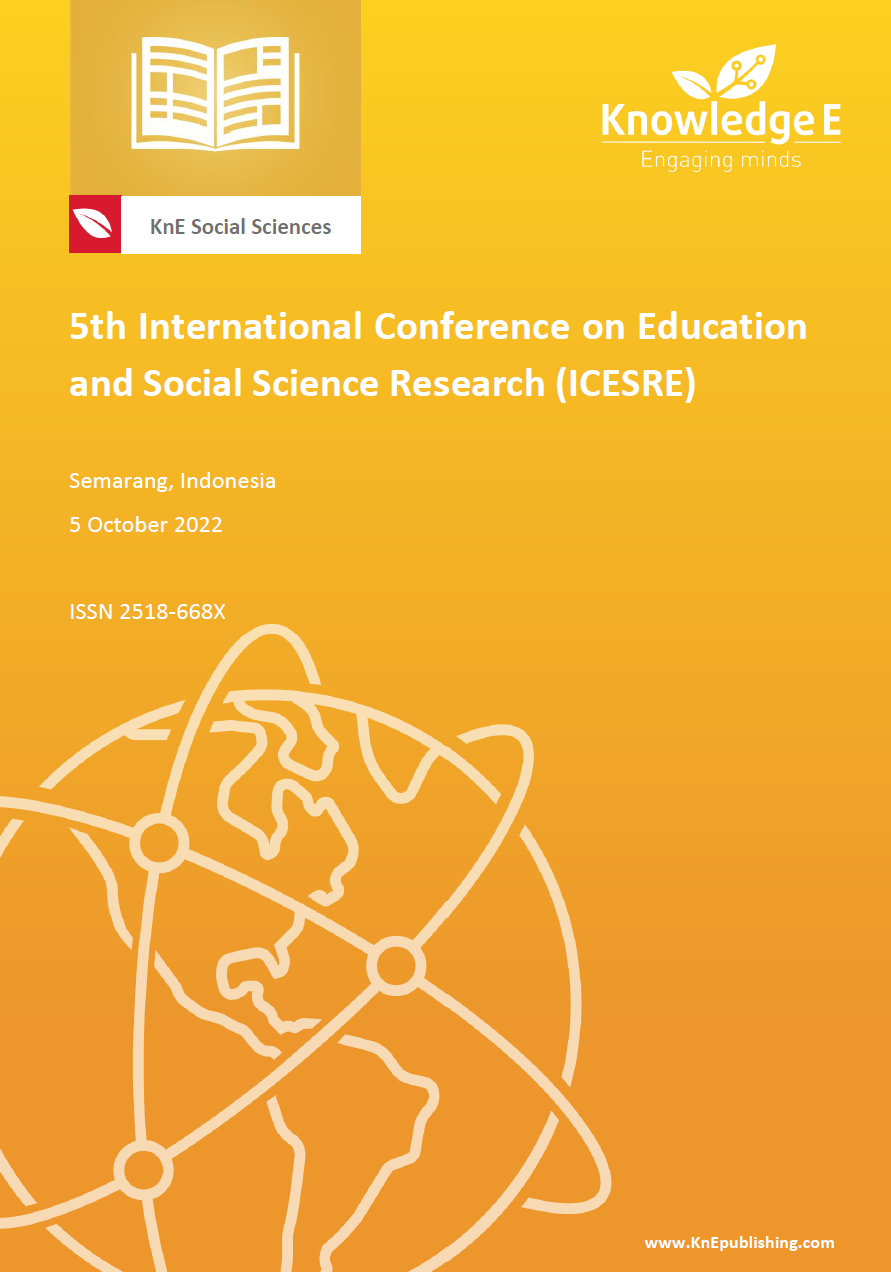Factors that are Strongly Associated with Student Learning Outcomes and their Policy Implications
DOI:
https://doi.org/10.18502/kss.v7i19.12445Abstract
For the first time in 2022, the Indonesian Ministry of Education and Culture issued a comprehensive report, namely the ‘Education Report Card.’ This report card describes the performance of education at schools and the local governments. This study aims to determine the differences in student learning outcomes based on school characteristics, the differences in school characteristics with different performances, and the factors that are strongly correlated with student learning outcomes. This research is quantitative with a correlational type. A total sample of 440 schools spread across 5 regencies in Central Java Province whose data comes from the year 2022 education report card for basic education level, was used in this study. The statistical analysis used is non-parametric with the Mann-Whitney and Kruskal Wallis difference test and the Spearman correlation test. The results showed that there were significant differences in student learning outcomes based on the type of school, and the status of the school, but not for the type of regencies; there were significant differences in teacher characteristics, learning processes, management processes, and school climate; and factors strongly related with student learning outcomes are the quality of the learning process, the quality of school management, and school climate. The implication of the results of this study is used as the basis for preparing education policy to improve the quality of education by local governments and improving weak educational inputs and processes.
Keywords: education inputs; learning process; process management; educational performance; education report
References
[2] Hattie J. Visible learning for teachers: Maximizing impact on learning. England, UK: Routledge; 2012.
[3] Apriliadi A. Pengaruh manajemen kelas terhadap prestasi belajar siswa pada mata pelajaran produktif administrasi perkantoran kelas X di SMK negeri 3 Bandung. Indonesia: Universitas Pendidikan Indonesia; 2013.
[4] Mubarok MA. Pengaruh manajemen kelas terhadap prestasi belajar siswa Jurusan Akuntansi kelas XI SMK Negeri 2 Kediri tahun ajaran 2016/2017. Indonesia: SKRIPSI Mahasiswa Universitas Malang; 2022.
[5] Uran AL, Leton SI, Uskono IV. Pengaruh efikasi diri dan dukungan sosial guru terhadap prestasi belajar matematika siswa. Asimtot: Jurnal Kependidikan Matematika. 2019;1:69–76.
[6] Moec K. Peta jalan pendidikan Indonesia 2020-2035. 2020. p. 1–74. Available from: http://eng.unila.ac.id/wp-content/uploads/2020/06/5.a-Peta-Jalan-Sistem- Pendidikan-2020-2035_Kemendikbud.pdf
[7] Syahrowiyah T. Pengaruh metode pembelajaran praktik terhadap motivasi dan hasil belajar pendidikan agama islam siswa kelas IV sekolah dasar. Studia Didaktika. 2016;10:1–18.
[8] Shannon GS, Bylsma P. Nine characteristics of high-performing schools: A researchbased resource for schools and districts to assist with improving student learning. USA: Washington Office of Superintendent of Public Instruction; 2007.
[9] Bell M, Cordingley P. Characteristics of high performing schools. UK: Centre for use of research and Evidence in Education; 2014. Available from: http://www.curee.co.uk/files/publication/%5Bsitetimestamp% 5D/Teach%20First%20Research%20Report.pdf
[10] Aziz A. Kontribusi lingkungan belajar dan proses pembelajaran terhadap prestasi belajar siswa di sekolah. Jurnal Tarbiyah. 2018;25:1–20.
[11] Kwong D, Davis JR. School climate for academic success: A multilevel analysis of school climate and student outcomes. Journal of Research in Education. 2015;25:68–81.
[12] Smith T, Shouppe G. Is there a relationship between schools’ climate ratings and student performance data? National Teacher Education Journal. 2018;11.
[13] Dulay S, Karadağ E. The factors effecting student achievement. Germany: Springer; 2017. The effect of school climate on student achievement. p. 199–213.
[14] Lestari KE, Yudhanegara MR. Penelitian pendidikan matematika. Bandung: PT Refika Aditama. 2015;2.
[15] Hidayah R. Profil kemampuan membaca siswa kelas 5 Sekolah Dasar (SD) dan Madrasah Ibtidaiyah (MI) ditinjau dari jenis sekolah dan jenis kelamin. Madrasah: Jurnal Pendidikan dan Pembelajaran Dasar. 2011;4.
[16] Anfus N. Perbandingan kecemasan dan hasil belajar matematika antara siswa SMP dan MTs. Pediamatika. 2019;1:77–90.
[17] Firmansyah, Irnandi I, Purwati, Haryanto. Kemampuan pemecahan masalah matematika siswa kelas VI SD negeri dan swasta pada masa pandemi. Jurnal Cakrawala Pendas. 2022;8:420–427.
[18] Sopiany RI, Santosa CAHF, Setiani Y. Analisis hasil ujian nasional matematika berdasarkan status sekolah (negeri dan swasta) dan kompetensi guru tingkat SMP/MTs kota Tangerang. TIRTAMATH: Jurnal Penelitian dan Pengajaran Matematika. 2019;1:60–74.
[19] Taufik T. Pendidikan karakter di sekolah: Pemahaman, metode penerapan, dan peranan tiga elemen. Jurnal Ilmu Pendidikan Universitas Negeri Malang. 2014;20:110914.
[20] Indarwati K. Implementasi pendidikan karakter di sekolah negeri dan swasta kota Surakarta. Indoensia: IAIN Salatiga; 2020.
[21] Saepudin J. Pendidikan karakter pada madrasah ibtidaiyah swasta Al-usmaniyah bagan batu provinsi riau. Penamas. 2014;27:189–204.
[22] Ismiatun AN. Studi komparatif perkembangan sosial anak usia 5-6 tahun di desa dan kota. Jurnal Program Studi Pendidikan Guru PAUD STKIP Siliwangi Bandung. 2020;6:8–12.
[23] Hattie J. Teachers make a difference, what is the research evidence? Paper presented at the Building Teacher Quality: What does the research tell us ACER Research Conference, Melbourne, Australia; 2003. Available from http://research.acer.edu.au/research_conference_2003/4/

